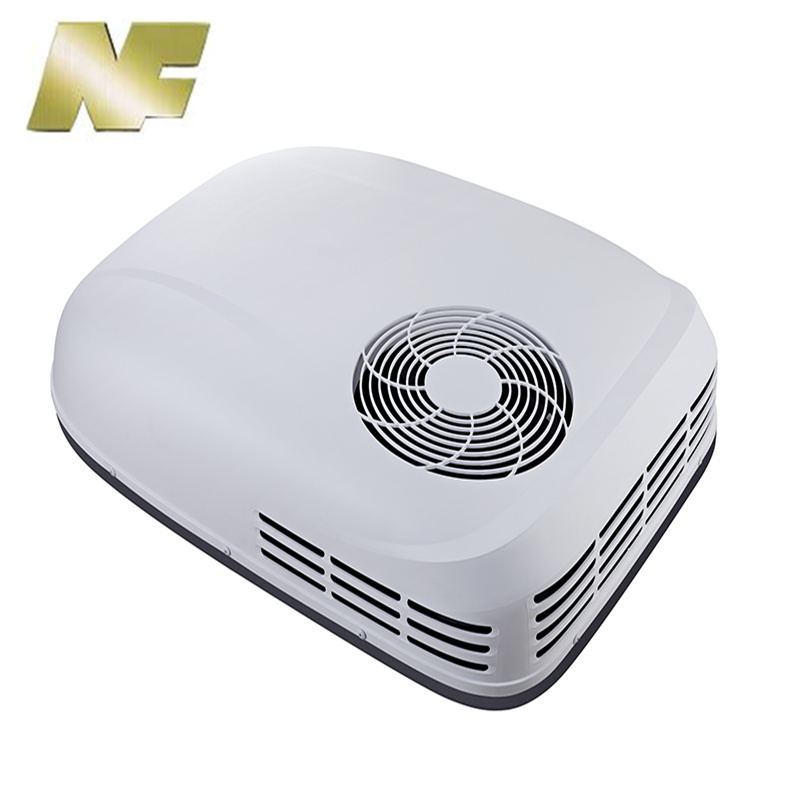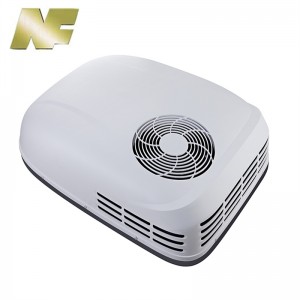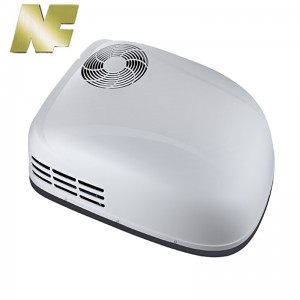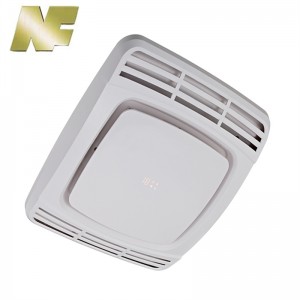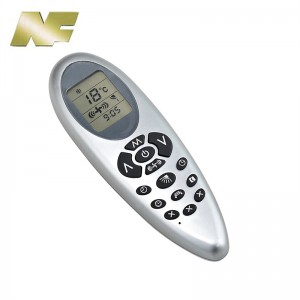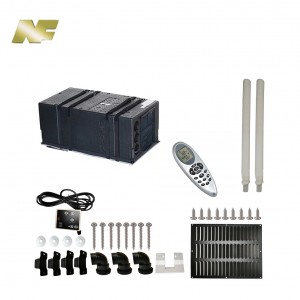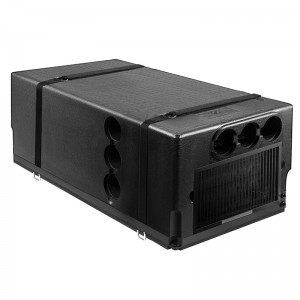NF 220V 50Hz/220V-240V 60Hz RV Motorhome Camper Roof Air Conditioner
Description
Air conditioning is an absolute must when camping in the hot summer months. Especially for those who prefer to live in a campervan or RV, investing in a reliable camper roof air conditioner can make all the difference in creating a comfortable, enjoyable camping experience. In this comprehensive guide, we’ll explore the various factors you should consider when choosing a camper roof air conditioner, ensuring you make an informed decision that perfectly suits your needs.
1. Assess your cooling needs :
Knowing your camper's cooling requirements is the first step in finding the right air conditioner. Consider the size of your camper and the number of occupants it can accommodate to determine the BTU (British Thermal Unit) rating you need. Higher BTU rating means more cooling capacity. However, it's worth noting that an oversized device can waste energy and cause humidity issues.
2. Types of Camper roof air conditioners:
There are two main types of camper roof air conditioners: ducted and non-ducted. Ducted models provide even distribution of cool air through ductwork, making them ideal for larger campers or RVs. Non-pipe models, on the other hand, are more compact and suitable for smaller campers. Consider the layout and dimensions of your camper before deciding which type best meets your needs.
3. Power supply and electrical compatibility:
Most camper roof air conditioners run on alternating current (AC) or direct current (DC) power, with AC power being the more common choice. Make sure your camper has an electrical system that supports the air conditioning requirements of your choice. If you choose a DC powered unit, you may need to install additional wiring or invest in an inverter. Also, consider energy consumption as it can affect your camping experience, especially if you rely on batteries or generators.
4. Noise level :
A good night's sleep is essential on a camping trip, so choosing a campervan air conditioner whose noise levels won't interfere with your rest is crucial. Check the decibel (dB) rating of an air conditioner before purchasing. Strive for a noise level below 60 decibels to ensure a quiet and peaceful environment.
5. Installation and compatibility:
Consider how a camper roof air conditioner will install and operate in an existing camper van setup. Make sure the size of the unit is compatible with your camper's roof, and check for any obstructions that might prevent the installation, such as vents, sunroofs, or solar panels. Also, take into consideration the weight of the equipment as it should not exceed the load capacity of the camper roof.
6. Energy efficiency and environmental impact:
Opting for an energy-efficient camper roof air conditioner will not only help reduce your carbon footprint, it will also save you money in the long run. Look for models with high energy efficiency ratings (EER or SEER). Also, consider equipment that uses an environmentally friendly refrigerant like R-410A, as it has a lower environmental impact than older refrigerants.
Conclusion:
Choosing the perfect camper roof air conditioner can greatly enhance your camping experience, allowing you to escape the summer heat and enjoy maximum comfort on your outdoor adventures. By considering factors such as cooling needs, type, power supply, noise level, compatibility, and energy efficiency, you'll be in a good position to find the perfect air conditioner for your camper.
Technical Parameter
| Model | NFRTN2-100HP | NFRTN2-135HP |
| Rated Cooling Capacity | 9000BTU | 12000BTU |
| Rated Heat Pump Capacity | 9500BTU | 12500BTU(but 115V/60Hz version has no HP) |
| Power consumption(cooling/heating) | 1000W/800W | 1340W/1110W |
| Electric current(cooling/heating) | 4.6A/3.7A | 6.3A/5.3A |
| Compressor stall current | 22.5A | 28A |
| Power Supply | 220-240V/50Hz, 220V/60Hz | 220-240V/50Hz, 220V/60Hz, 115V/60Hz |
| Refrigerant | R410A | |
| Compressor | Horizontal type, Gree or others | |
| Upper Unit Sizes (L*W*H) | 1054*736*253 mm | 1054*736*253 mm |
| Indoor panel net size | 540*490*65mm | 540*490*65mm |
| Roof opening size | 362*362mm or 400*400mm | |
| Net weight of roof host | 41KG | 45KG |
| Indoor panel net weight | 4kg | 4kg |
| Dual motors + dual fans system | PP Plastic Injection cover, metal base | Inner frame material: EPP |
Product Size
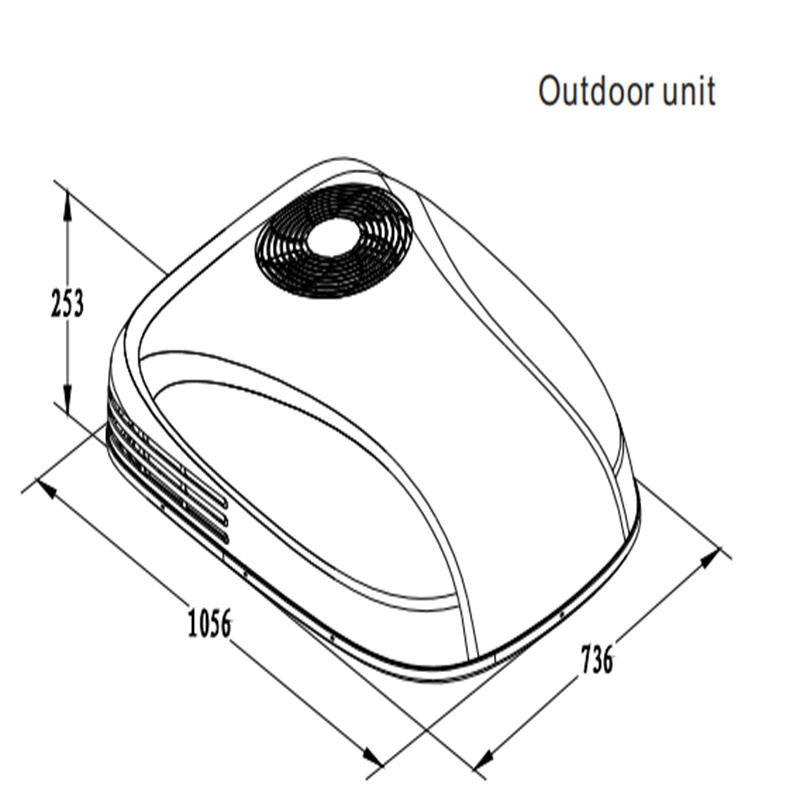
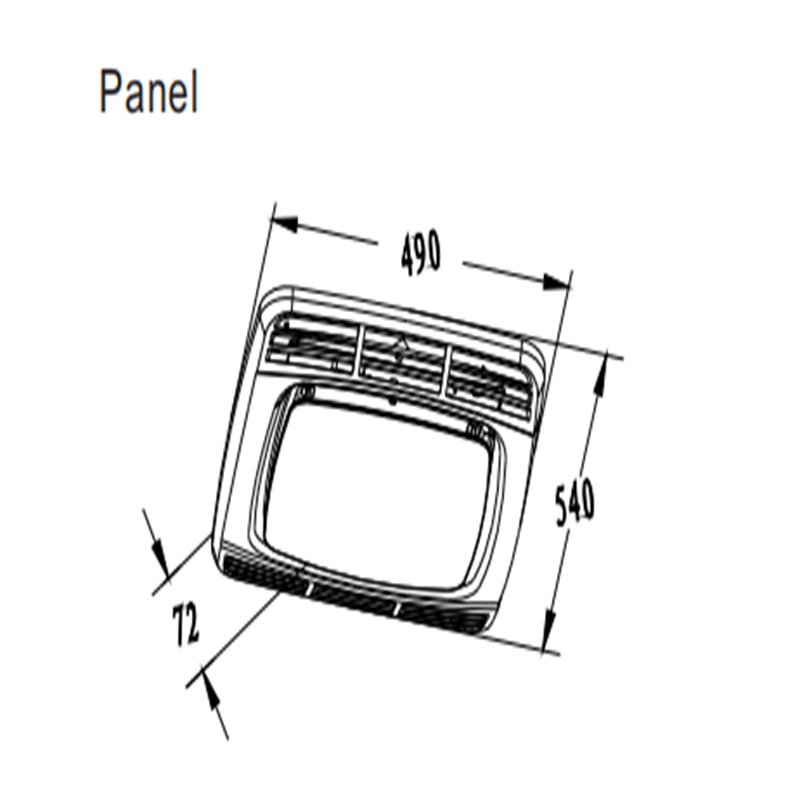
FAQ
1. What is a caravan roof air conditioner?
A caravan roof air conditioner is a cooling system designed specifically for a caravan or recreational vehicle (RV). It is mounted on the roof of the vehicle to provide efficient and comfortable cooling during the hot summer months.
2. How does a caravan roof air conditioner work?
These units operate similarly to traditional air conditioners, using a refrigeration cycle to remove warm air from inside the caravan and expel it outside. The cold air is then recirculated within the living space, providing a comfortable temperature.
3. Can the RV roof air conditioner double as a heater?
Some caravan roof air conditioners have a reverse cycle function that provides both cooling and heating. This is especially beneficial for those using the caravan in the colder months or in cooler climates.
4. Can I install a caravan roof air conditioner myself or do I need professional help?
While some people may have the skills and knowledge required to install a caravan roof air conditioner, it is generally advisable to seek professional installation. This ensures proper installation, reduces the risk of damage and maintains the manufacturer's warranty.
5. Is the air conditioner on the roof of the RV noisy?
Modern caravan roof air conditioners are designed to run silently, providing a comfortable, quiet environment inside the caravan. However, noise levels may vary by make and model of equipment, so it is advisable to check specifications before purchasing.
6. How much power does the air conditioner on the roof of the RV consume?
The power consumption of a caravan roof air conditioner varies based on factors such as unit size, efficiency class and cooling capacity. It is important to consider your caravan's electrical requirements and choose a compatible air conditioner.
7. Can the caravan roof air conditioner run on batteries?
Some caravan roof air conditioners can be powered by batteries, allowing cooling even when the vehicle is not connected to an external power source. However, battery power can have limitations in terms of available run time and cooling capacity.
8. Can I use a generator to power my caravan roof air conditioner?
Yes, the generator can be used to power the caravan roof air conditioner. However, it is important to ensure that the generator has sufficient power capacity to support the requirements of the air conditioner and to account for the additional power needs of other appliances.
9. Is the caravan roof air conditioner weatherproof?
Caravan roof air conditioners are designed to withstand outdoor conditions and are often weatherproof. However, it is important to regularly inspect equipment for any signs of damage or leaks and take necessary precautions during extreme weather conditions.
10. What kind of maintenance does an RV roof air conditioner require?
Regular maintenance is essential to keep your caravan roof air conditioner performing at its best. This includes cleaning or replacing filters, checking for leaks, checking the outside of the unit, and ensuring proper airflow. It is recommended to refer to the manufacturer's instructions for specific maintenance guidelines.

